Last week, Lynn Baldwin-Rhoades of Power Chicks, asked me a few questions about thought leaders, intuition and how thought leaders are just PR-created forces in the marketplace. What do you think?
Here’s what I think:
Q: As a culture, we’re becoming increasingly tuned into the natural strengths of that women bring to leadership. But I gotta tell you — the term “thought leader” is a bit of a trigger for me. It shows up in so many marketing campaigns and PR-driven materials that is sometimes seems like a shiny veneer of credibility rather an accurate assessment of influence.
How do you definite thought leadership, particularly in the context of women entrepreneurs?
A: First off I want to clarify that I think “emotional follower” and “thought leader” are more descriptive of levels of consciousness vs people who either are that or are not that. It’s easier to just say “are you an emotional follower or thought leader?” (We do love our labels! And I’ll admit when you look at my branding and the Aligned Voice Assessment it’s written that way to make the copy flow better. Ahh. Truth hits the editing room floor for ease and sexiness. Guess I’m not totally immune!) But in reality, it’s a process of evolving and expanding our hearts and our minds as well, and spending more and more time in the higher consciousness and vibration of thought leader energy.
That said, I think of a thought leader as someone who is grounded, intuitive, and who is deeply connected to others and to the planet. She is informed by her feelings, but is not overwhelmed or led by her emotions. She is a visionary: meaning she sees new ways of doing things that others don’t see, maybe that’s only in her family! Maybe it’s bringing a new way of thinking and being to her family that she learned from a weekend seminar, and having the guts to share it, live it and lead herself and her family from this place! That’s ultimately changing the world, that’s leading thought, close to home.
She is the primary creative force in her life and sovereign in her authority. What I mean by that is she takes full responsibility for herself, her actions, her results – her mind, and her emotions.
She recognizes that we ALL have an influence in the world, whether that’s at home with her kids, partner, or community, and even in the world of business.
Where does all that start? In her head. I believe anyone can become a thought leader. It’s being the primary creative force in one’s life. And when you’re in business, you gotta be a thought leader, otherwise you’ll be pulled all over the place by emotions and drama and getting caught up in the details. (Same with motherhood too!)
And yes, a thought leader can be someone on stage or who is out to change the world in a big way. Frankly, in some ways I feel like anyone who publicly calls herself a thought-leader in this context isn’t really. A thought leader may want to have the recognition, but it’s not the reason they are doing what they do. Their ego is truly out of it. That’s at the highest level of thought-leader consciousness. It’s one of those terms I feel is reserved for others to call us, vs. something we get to claim out in the world as a title that sounds slick. It’s all about who you’re BEING. True thought leaders aren’t concerned with being called a thought leader (though truth be told it would be cool!), they are only concerned with creating a vision for the world that matches the one in their heart.
Q: Inherent to any start-up is experimenting with what works and what doesn’t. Jonathan Fields calls this the “thrash” — and encourages entrepreneurs to “embrace and exalt the process of trial, error, funk, success, stumble and grace.” Wise words, those!
Yet I see so many women whose self-esteem rises and falls with their successes and failures, and it seems hogtied in particular to their bottom line. What insight can you offer to help them stay present to their own ups and downs? How can they avoid being what you call an emotional follower?
A: Great question! I love Field’s description of ‘thrash’, it’s so fitting. I think women in particular, because we tend to be more emotionally driven – both biologically and culturally, can lose ourself in the “relationship” aspect of our business. We forget that there is a difference between personal relationships and business relationships. Business relationships are, for the most part, short-term. Not always of course, but most of them are. I think sometimes we are trying to hard to be “friends” or build long-term best-friend relationships and if something happens to that relationship or if money comes into the equation we get all flustered and weird about it.
My mother-in-law was a successful business woman. Granted, she was in a male-dominated business, engineering, but she could be heard saying “I’m running a business, not a day care” when it came to trying to please all the people who worked for her. She had her friendships outside of business, and the relationships she built at work were tied to how is this bringing contracts (money) into her corporation and how does it affect the bottom line? Nowadays, I see this interesting blend of folks who are in relationship-marketing businesses lead with product vs the relationship, and people who are in service-based businesses lead with relationship so much that when the topic of money comes up they’re afraid to ask for the sale. Both can easily miss the mark.
Being in an emotional follower mindset has to do with letting your emotions rule. In this particular case it’s taking things personally that really aren’t personal, and letting the natural connection we can create as women become so much of the focus that we forget a important fact: a business is created to make money. If you are not selling, you are not making money. If you are trading, or giving huge discounts to your friends (on a regular basis), you have a hobby, not a business. That creates anxiety, low self-esteem and resentment, all of which devalue ourselves, our work and only feed the emotional follower mindset.
Q: Intuition is (or can be, with practice) every woman’s super power, and it’s as key to business growth as anything out there. As it turns out, intuition acts as a second brain smack dab in the middle of our gut. (Read The Second Brain to get the whole enchilada.)
You’ve said that thought leaders are dialed into their intuition. Speak to the ways our gut informs our thoughts and thus our influence as leaders.
A: I call our Inner Voice, which is our intuition, our Most Trusted Advisor. It knows the next best step for us to take; it knows who we need to connect with, and who to avoid, when we are at networking events. It knows what to say and when, and it knows when we are aligned with our Truth and when we are not. Listening to and speaking from this Inner Voice is essential in all areas of our life. The biggest reason being that if we aren’t listening to this voice then we are listening to the little voices of ego, and if we lead from those little voices we are basically leading from fear – which is not attractive nor beneficial.
Thought leaders listen to and act based on their intuition (Inner Voice) without second-guessing it or letting “the benefit of the doubt” sneak in and sabotage things. This takes a high degree of courage and ability to speak one’s truth without fear of “losing” something if they act on their intuitive hits. This is often easier said than done. I say intuition is often socially inconvenient at best and downright gut wrenching and ego busting when it calls us to be our best. For this reason alone, I think women talk about trusting their gut, but don’t take action because of fear of what would happen.
When we lead from the Inner Voice, we are leading from Spirit or God, we are leading from our heart. When I say this though, I do not mean that we are leading with our “overly-emotionally-attached-and-fearful-will-you-love-me-back-heart”, but the heart that is full of love, security, and self-esteem. This heart, this Inner Voice, wants nothing other than to be expressed, with no attachment to outcome, to enroll others in a vision for what’s possible, and take the steps necessary to make that vision come to life. That’s leadership.
Are you on track to be a thought leader? Take my Aligned Voice Assessment and find out: http://www.krisprochaska.com/assessment



